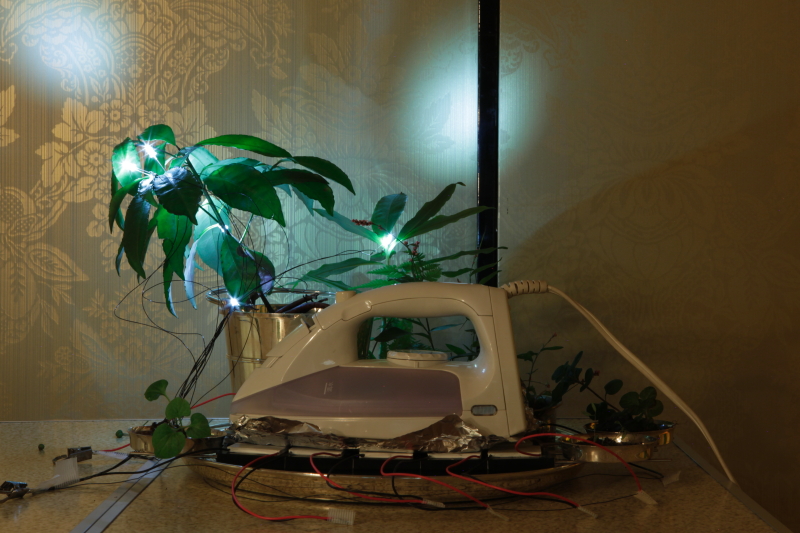
2019年5月8日(水)~19日(日)12:00-19:30
ギャラリートーク 5月12日(日)18:00-19:30 入場無料・予約不要
クロージング・パーティー 5月18日(土)19:00-21:00
NICA:Nihonbashi Institute of Contemporary Arts
〒103-0011 東京都中央区日本橋大伝馬町13-1 PUBLICUS B1F
アニー・バンガロス
江幡京子
バン・ニャット・リン
大竹純子
さくまはな
ジョン・L・トラン
Do You Love Me?展は父親、母親、その子供達との関係性をテーマにしたグループ展です。日本、イギリス、ドイツ、ベトナムを拠点に活動する6名のアーティストがそれぞれ個として親や子と向き合いつつ、テキスタイル、写真、ミクストメディア など様々な表現方法で作品を展開させます。
今回日本で初の作品展示を行うアニー・バンガロス(Annie Bungeroth)は『Fred』(2000)と題した写真シリーズを介し、認知症である父親の日々の生活をつぶさに観察し、その過程を通して新たな親子の関係性を築き上げました。ベトナム出身アーティスト、バン・ニャット・リン(Bang Nhat Linh)は、家父長制について個人的な経験と社会構造の両側面から迫った映像作品『Untitled』 (2019)を発表します。さくまはなのインスタレーション作品では、ジャワ舞踊家になった実兄の影響でインドネシアに通いつめるようになった実父のバティックシャツのコレクションを陳列し、父、息子、それを俯瞰する娘という家族図を浮かび上がらせます。大竹純子は、自宅にある子供の古着や日用品で制作したパーティーの輪飾りのような鎖状の造形を通して、「理想の子供像」への願いや執着を示唆します。ジョン・L・トランの写真 『đánh chết (I’ll Hit You Dead) 』 (2018)は、ビジュアル・アートの表現(representation)も人間の生殖活動も、複製(reproduction)のメディアであることを端的に示します。江幡京子の映像『The Case of T & S (2019)』 は子供としての義務と、親と離れて暮らすことができ、ある意味で特権的な立場からの観察者として、父と母の姿、あるいは、夫婦間の揺れ動く関係性を記録しつつ、自分自身を見つめる作業をしています。
12:00-19:30 Wednesday 8 – Sunday 19 May 2019
Gallery talk: 18:00-19:30 Sunday, 12 May 2019
Closing party: 19:00-21:00 Saturday, 18 May 2019
Annie Bungeroth
Kyoko Ebata
Bang Nhat Linh
Junko Otake
Hana Sakuma
John L Tran
Using textiles, photography and video, this group exhibition focuses on relationships between mothers, fathers and children. Annie Bungeroth used photography in her series ‘Fred’ to create an intimate observation of her father’s dementia and found that through this process their relationship was also able to reach new levels. Vietnamese artist Bang Nhat Ling’s video work looks at patriarchy as both personal experience and social construction. Hana Sakuma uses her father’s collection of Indonesian Batik shirts as a consideration of connection and selfhood in parent-child relations. Junko Otake’s birthday party paper chains, created with used family clothing, is ambivalent about the ‘ties that bind’, being both celebratory and portentous. In John L Tran’s photos, visual representation and biological offspring are considered as media of reproduction, and Kyoko Ebata documents the dynamics of her parent’s relationship from the point of view of a privileged, but obligatory observer.




